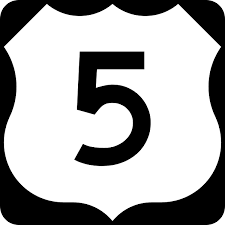 During the laborious and stressful writing process, most authors tend to focus their thoughts on the story, the title, and the front cover. However, there are several other very major aspects of a book that should be considered well in advance of sending the book to publication. You don’t want to have to make these decisions in a rush or when you are exhausted from having finished your manuscript. Please make sure to carefully consider the aspects below while you are writing your story.
During the laborious and stressful writing process, most authors tend to focus their thoughts on the story, the title, and the front cover. However, there are several other very major aspects of a book that should be considered well in advance of sending the book to publication. You don’t want to have to make these decisions in a rush or when you are exhausted from having finished your manuscript. Please make sure to carefully consider the aspects below while you are writing your story.
Font style and size: The key requirement here is that the font is readable and does not distract from the story. After that, it is down to personal preference, but please save the “funky” fonts for your marketing materials. One way to help you decide on a font is by finding one that you like in a book that you have read, and then to either track down its name (some books include the font style on the copyright page, i.e. the page before the Table of Contents) or look for a close match. Some popular fonts include Baskerville, Sabon, Garamond, and Utopia. Regarding font size, most writers tend to opt for 10 or 12. A font size that is too large makes the book look cheap and not serious, whereas a small font size is likely to alienate readers when they open it up in a bookstore.
Book length: How long, in pages rather than story, do you want your book to be? With all the options available in modern technology, the length of your story is not the only variable that is responsible for book length. A typical “full” page in the average-sized book has a maximum of 400 words, so you can divide the total number of words in your book by 400 to determine the number of pages that you will have. The fewer words you put on a page, the longer your book will be. However, bear in mind that book length is proportional to book price. For a fiction work, it is advisable to have at least 300 words on a page. Self-help and business books can get away with fewer words on a page, though less than 200 will have a negative effect on shoppers.
Back cover description: Some people may judge a book by its (front) cover, but nearly all potential readers look at the back cover before buying. The back cover is a tremendous opportunity for you to write something compelling about your book. You will want to avoid specific details but also give people enough information to make them open the book. The total amount of words on the back cover should not exceed 220. Make sure there is a fair amount of empty space (i.e. breaks between paragraphs), that the sentences are relatively short, that the print is not small, and that the words are not against a background that makes the text difficult to read (avoid white text on a black background).
Table of Contents: In addition to the back cover, potential readers also look at the table of contents. Hence, referring to each chapter simply by its number, e.g. “Chapter 1,” will not be advantageous. Instead, especially for self-help and business books, make sure to have an interesting title for each chapter. This also works well for thrillers and other fiction – just look at the chapter titles that Ian Fleming used in his 007 novels!
Book subtitle and elevator pitch: Especially for nonfiction works, subtitles are essential. The successful formula is a catchy title plus an informative subtitle. This is a two-pronged attack, as it both attracts and informs the shopper. As for the elevator pitch, this does not go into your book itself, but it is the concise way that you respond when you are asked, “What is your book about?” It should be 15 seconds long, and is basically a short extension of your subtitle. This will be extremely important for marketing your book, both orally and in writing.
Make sure to check out the iUniverse site for more advice and blogs, as well as iUniverse Facebook and iUniverse Twitter. For a FREE Publishing Guide, click here!
Related posts:
The Guardian recently published an article discussing the bestselling books of 2015, and the results...
Creating a good hook is not easy, but it is so essential that it is worth almost any amount of time ...
It is difficult to think of a writer who doesn’t enjoy reading. iUniverse can quote a myriad of ...

